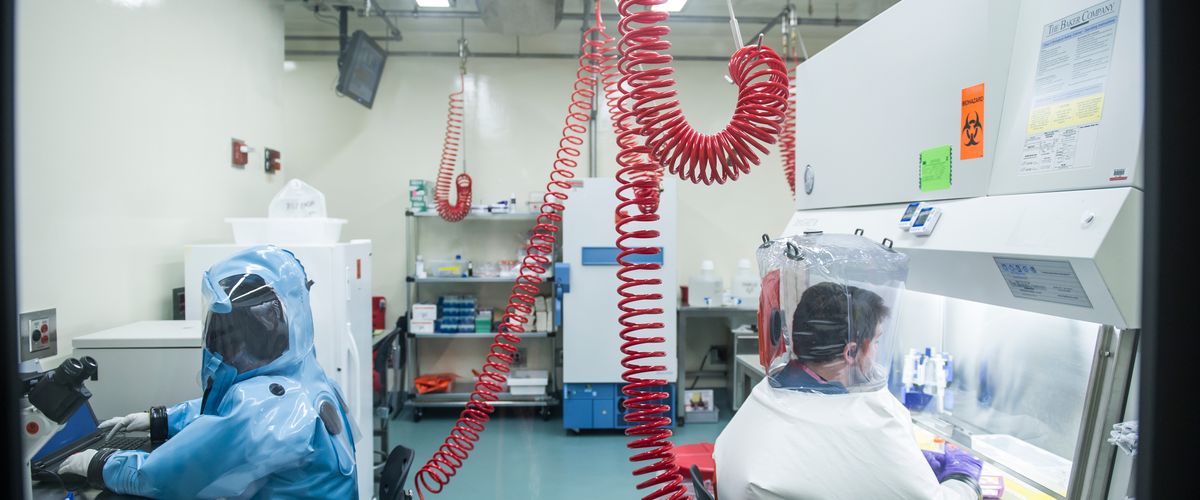NEIDL is a Boston University Center dedicated to research on emerging and re-emerging infectious diseases and the pathogens that cause them.
Both BU and the National Institutes of Health (NIH), whose grants provide the support for research at NEIDL, strongly believe in the importance of transparency in research as well as the broad dissemination of research findings.
As an academic institution, BU’s core mission is to broadly share whatever knowledge its researchers uncover with the world at large—and that extends to research in NEIDL, where scientists search for ways to detect, prevent, or cure EIDs. In order to better address global pandemics, the NEIDL has received nearly $1.9 million in new funding from the Massachusetts Consortium on Pathogen Readiness (MassCPR). This funding will help to develop and invest in the research process and supporting infrastructure to further advance coronavirus research and other potential future outbreaks.
For the last several decades, a new EID caused by a virus, drug-resistant bacterium, fungus, or parasite that causes human illness has been detected every 12–18 months. These pathogens have been identified all over the world, including within the United States, and the incidence is accelerating. Many of these pose the threat of causing large-scale epidemics or global pandemics. Not only is there an inability to predict their appearance, but there are critical gaps in our ability to detect, study, and respond to them in a timely manner. As a national resource, the NEIDL must anticipate these occurrences and the research needs to study them. Understanding basic molecular aspects of the pathogen, the interplay of the pathogen with its host, transmission dynamics, and clinical manifestations are all essential for the development of better diagnostics and safe, effective therapeutics and vaccines for us to treat, or even better, be able to prevent these diseases.
The NEIDL was conceived and built to meet these needs. The facility contains biosafety level 2 (BSL-2), BSL-3, and BSL-4 laboratories to undertake research on these pathogens in a safe and secure means. Faculty, staff, postdoctoral fellows, and students actively engage in EID research in the NEIDL’s laboratories. As the NEIDL aspires to be an innovative leader in the EID field, we constantly upgrade the instrumentation and tools available to our scientists; meeting the needs of these highly trained leading-edge investigators is a major focus of building the research enterprise.
Like most modern biomedical research areas, the conduct of research on EID requires multidisciplinary approaches. NEIDL faculty and staff collaborate widely within the greater Boston University community, as well as with partners across the United States and abroad.
BU will not conduct any secret or classified research in the NEIDL. To the contrary, the public will have access through several channels to information about any and all research before it even begins. For example, community representatives are invited to sit on certain committees, such as the Institutional Biosafety Committee, through which all research requests must pass for review and approval. The minutes of those meetings are posted online and available to the public.
Support the NEIDL and its Research by Giving

